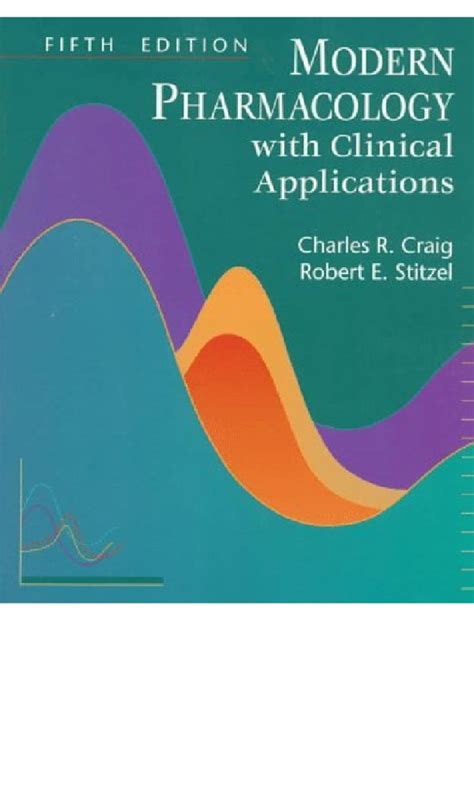Pharmacology, the study of how drugs interact with living organisms, has become an integral part of modern medicine. The field has evolved significantly over the years, and its applications are now widespread in various medical specialties. In this article, we will explore the importance of pharmacology in modern medicine, its benefits, and the various ways it is used to improve patient care.
What is Pharmacology?
Pharmacology is the scientific study of the interactions between drugs and living organisms. It involves understanding how drugs are absorbed, distributed, metabolized, and excreted by the body, as well as their effects on various biological systems. Pharmacology is a multidisciplinary field that combines knowledge from chemistry, biology, physiology, and medicine to develop new treatments for diseases.

Importance of Pharmacology in Modern Medicine
Pharmacology plays a vital role in modern medicine, and its importance cannot be overstated. Here are some of the key reasons why pharmacology is essential in modern medicine:
- Development of new treatments: Pharmacology helps in the discovery and development of new treatments for various diseases. By understanding how drugs interact with the body, pharmacologists can design new drugs that target specific biological pathways.
- Improving patient care: Pharmacology helps healthcare professionals to make informed decisions about drug therapy. By understanding the pharmacokinetics and pharmacodynamics of drugs, healthcare professionals can optimize drug dosing and minimize adverse effects.
- Personalized medicine: Pharmacology helps in the development of personalized medicine. By understanding an individual's genetic makeup and how they respond to different drugs, pharmacologists can tailor drug therapy to meet their specific needs.
Applications of Pharmacology in Modern Medicine
Pharmacology has numerous applications in modern medicine, and its impact is felt in various medical specialties. Here are some of the key applications of pharmacology in modern medicine:
Cancer Treatment
Pharmacology plays a critical role in cancer treatment. Cancer pharmacology involves the use of drugs to prevent or treat cancer. Pharmacologists use various strategies to develop cancer treatments, including targeted therapy, immunotherapy, and chemotherapy.

Infectious Diseases
Pharmacology is also essential in the treatment of infectious diseases. Antibiotics and antivirals are two classes of drugs that are commonly used to treat infectious diseases. Pharmacologists use various strategies to develop new antibiotics and antivirals, including the use of nanoparticles and gene therapy.
Neurological Disorders
Pharmacology plays a critical role in the treatment of neurological disorders, such as Parkinson's disease, Alzheimer's disease, and epilepsy. Pharmacologists use various strategies to develop new treatments for these conditions, including the use of gene therapy and stem cell therapy.
Benefits of Pharmacology in Modern Medicine
Pharmacology has numerous benefits in modern medicine, and its impact is felt in various medical specialties. Here are some of the key benefits of pharmacology in modern medicine:
- Improved patient outcomes: Pharmacology helps healthcare professionals to make informed decisions about drug therapy, which improves patient outcomes.
- Reduced healthcare costs: Pharmacology helps to reduce healthcare costs by developing cost-effective treatments and minimizing adverse effects.
- Increased patient safety: Pharmacology helps to increase patient safety by developing safer treatments and minimizing adverse effects.
Challenges Facing Pharmacology in Modern Medicine
Despite the numerous benefits of pharmacology in modern medicine, there are several challenges facing the field. Here are some of the key challenges facing pharmacology in modern medicine:
- Antimicrobial resistance: The overuse and misuse of antibiotics have led to the development of antimicrobial resistance, which is a major challenge facing pharmacology in modern medicine.
- Cancer drug resistance: Cancer cells can develop resistance to cancer drugs, which is a major challenge facing pharmacology in modern medicine.
- Personalized medicine: Developing personalized medicine is a major challenge facing pharmacology in modern medicine.
Future of Pharmacology in Modern Medicine
The future of pharmacology in modern medicine is promising, and the field is expected to continue to evolve in the coming years. Here are some of the key trends shaping the future of pharmacology in modern medicine:
- Precision medicine: Precision medicine is a rapidly growing field that involves the use of genetic information to develop personalized treatments.
- Gene therapy: Gene therapy is a rapidly growing field that involves the use of genes to develop new treatments for various diseases.
- Stem cell therapy: Stem cell therapy is a rapidly growing field that involves the use of stem cells to develop new treatments for various diseases.

Conclusion
In conclusion, pharmacology plays a critical role in modern medicine, and its applications are widespread in various medical specialties. The field has numerous benefits, including improved patient outcomes, reduced healthcare costs, and increased patient safety. However, there are several challenges facing pharmacology in modern medicine, including antimicrobial resistance, cancer drug resistance, and personalized medicine. The future of pharmacology in modern medicine is promising, and the field is expected to continue to evolve in the coming years.






What is pharmacology?
+Pharmacology is the scientific study of the interactions between drugs and living organisms.
What are the applications of pharmacology in modern medicine?
+Pharmacology has numerous applications in modern medicine, including cancer treatment, infectious diseases, and neurological disorders.
What are the benefits of pharmacology in modern medicine?
+Pharmacology has numerous benefits in modern medicine, including improved patient outcomes, reduced healthcare costs, and increased patient safety.
